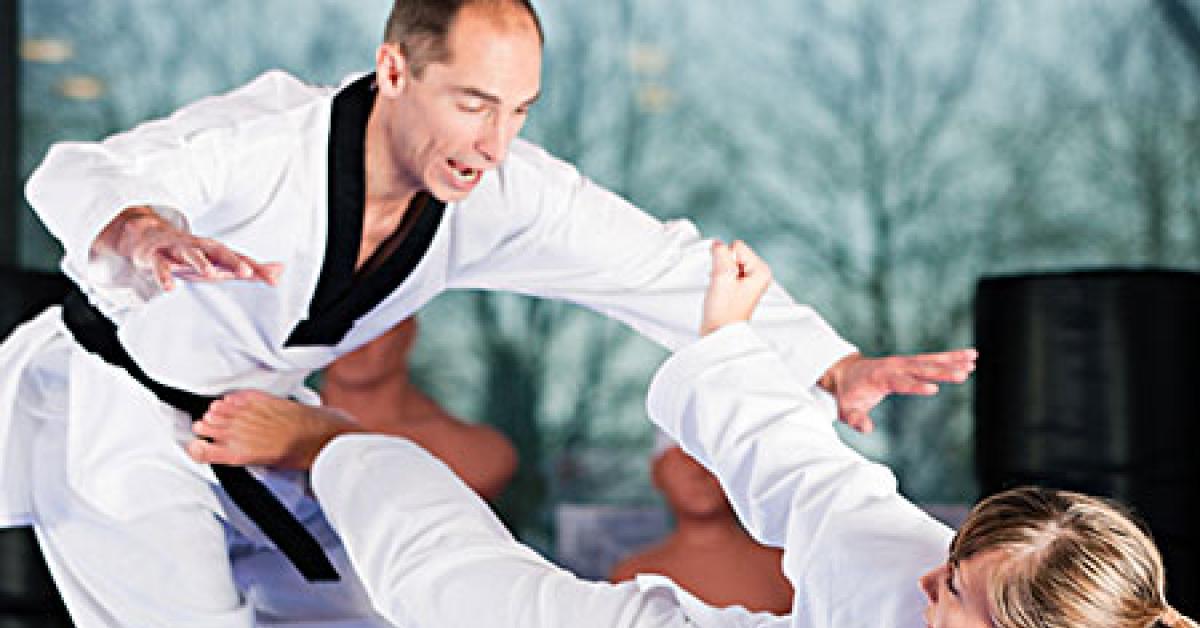PEMBROKE, Mass. — I recently received this mail: “Hello. My name is Jane Smith. I am a martial arts teacher, and my students are on vacation, so I want you to clean and press my students’ tae kwon do uniforms. The man that always does the cleaning is not available. That is why I want you to do it. I usually pay $12 per uniform, so I want you to give me a discount, OK?”
Obviously, this is some sort of mistake. I write about dry cleaning, but I do no dry cleaning. Perhaps she meant to send it to a dry cleaner, but mistakenly sent it to me. Anyway, we can learn something from her mistake.
Who knew that tae kwon do uniforms needed to be dry-cleaned? And why would her students need to be on vacation?
Most likely, they are outfits that can be processed in a day or two. (Or is there some special care required?) Furthermore, $12 is quite a good price. If she had 50 students, that’s $600. Maybe she cleans them three times a year. That’s $2,000 worth of business. Not bad for an erroneously received e-mail.
I would ask these questions: How many tae kwon do studios are in the area? Do some general gyms offer tae kwon do? Could I grab the urban tae kwon do business? And what is tae kwon do anyway? (I believe it is some sort of karate, but I don’t know.) Which leads me to this question—do any other martial arts practitioners clean their uniforms?
If I were a dry cleaner, I would reply to the woman’s e-mail and tell her I would love to clean the uniforms. Then, I would follow up with a phone call. Next, I would visit her studio and examine the uniforms, feeling them and evaluating how much work cleaning them would entail. Then I would inquire how they are used, which also would help me get a feel for the nature of the cleaning required. If she were teaching students at the time, I would watch. Mentally, I would figure how much it would cost to dry-clean the uniforms.
She says she pays $12 a uniform, so I would offer to clean them for $10 each, if I could. If $10 won’t give you a profit, offer to clean the uniforms at $11 a piece. The point is, if you are handed business, it is always good to better the competitor’s offer. Later, you can raise the prices so that your full profitability is achieved. On the other hand, I certainly wouldn’t do the work at a loss.
After I did the job, I would seek out other tae kwon do studios in the area, casting myself as an expert. You could say, “I’ve had a lot of experience cleaning tae kwon do uniforms. I know how the fabric folds and bends, and how to process the outfit so that it comes out looking new. In fact, I consider it one of my specialties.” A little exaggeration perhaps, but with a few more jobs under your belt, you’ll truly become an expert.
This is the way to develop niche businesses. Seek out the opportunities. Discover how the garment is used. Figure out the best way to clean and process the garment. Print up a one-page sheet, mentioning the special handling done with these outfits. Hand out the sheet to prospects, or mass-mail to an organization of prospects. Building on that base, go after more business.
Let’s go over each step:
SEEK OUT OPPORTUNITIES
This e-mail erroneously sent to me provided the opportunity, but such serendipitous offers don’t always fall into your lap. So, you must always be on the lookout for potential trade. When in business districts, look around. Consider a business’ special needs.
Perhaps that karate studio teaches tae kwon do. It’s possible that restaurant uses linen tablecloths that must be dry-cleaned. Might that hotel dry-clean its concierge outfits? Does that second-floor medical lab dry-clean its lab coats?
Does the factory at the end of the retail district dry-clean some of its work outfits? Does the school up the street dry-clean its graduation outfits? Might the theater on the second floor need to dry-clean some of its props?
Does the Masonic organization have any outfits that need to be periodically dry-cleaned? Does the church at the end of the block dry-clean its vestments? Does the beekeeping club need to dry-clean its keeper outfits? Do fencing club members dry-clean their costumes? (Confession: I was once a fencer, and I know that fencing uniforms have electric circuits inside the fabric, which makes dry cleaning a better alternative to laundering).
Look through the Yellow Pages—yes, they’re still around—and try to spot opportunities. For example, maybe the costume shop cleans some of its rentals. Small-equipment rental shops may dry-clean their uniforms because those outfits get dirty and uniform rental is too expensive. Read the local newspaper; maybe an ad can lead you to a customer. Whenever you meet someone who works in an unusual business, question the need for dry cleaning. For example, does a funeral director need to dry-clean its formal wear?
Of course, an Internet search can reveal professions that might require drycleaning services. As a 30-year beekeeper, I wrote a little book, Bee Lessons, and sold 30,000 copies. One type of customer is retail honey stores, which are now cropping up around the country. But how do you find out who and where they are? I Googled “retail honey stores in Texas,” and did the same with the other states. Ultimately, I obtained a long list of prospects, which I called.
The conclusion on Wednesday: Refining item care, selling your service
Have a question or comment? E-mail our editor Dave Davis at [email protected].

